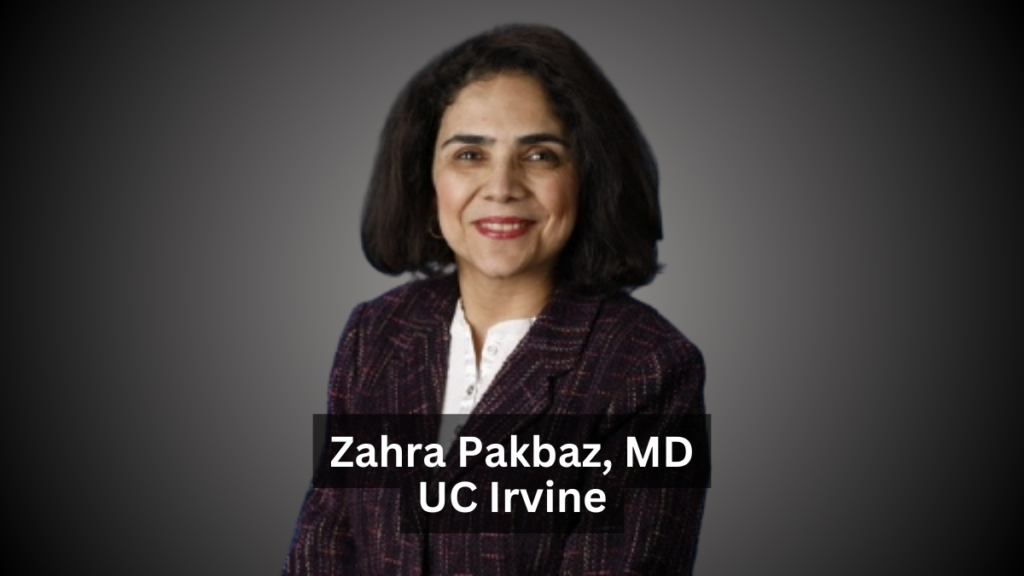Zahra Pakbaz, MD, shed light on a range of critical findings from the American Society of Hematology (ASH) meeting, with a particular focus on the dynamic sphere of benign hematology. Amidst a potential shortfall in expertise within this field, Pakbaz’s research, conducted with a team of dedicated students, highlighted the pivotal role that hematologists play in the management of non-cancer blood disorders, such as sickle cell disease. This article delves into the significance of Non-Malignant Hematology Clinics, presenting Pakbaz’s insights on the vital presence of these clinics and the exciting potential that gene therapy holds for sickle cell disease and beta-thalassemia treatment.
[VIDEO] The Importance and Impact of a Dedicated Clinic Non-Malignant Hematology Clinics – Zahra Pakbaz, MD – MOASC 2024
Bridging the Gap in Benign Hematology
Pakbaz identified an alarming trend: a growing gap in specialized knowledge in benign hematology. Research focused on gauging the impact of Non-Malignant Hematology Clinics exclusively attending to non-cancer blood disorders has provided robust evidence that supports the necessity for specialized hematology care. Over a two-year span, Pakbaz’s clinic, which served solely benign hematology patients, registered a significant demand that crossed various zip codes and cities.
The clinic’s performance exceeded established benchmarks, with substantial referral rates from both primary care and oncology-based hematology, which reiterates the critical need for Non-Malignant Hematology Clinics. The data compellingly advocates for the integration of hematologists into the treatment plans of patients with conditions like sickle cell disease to markedly improve outcomes.
Advancements in Sickle Cell Disease Treatment
Pakbaz gave an update on clinical trials targeting sickle cell disease, including a phase three trial on atavopivod, an oral medication that represents a new therapeutic promise. Furthermore, Pakbaz emphasized the significant impact of Iptacopan’s approval for Paroxysmal Nocturnal Hemoglobinuria (PNH), noting its superiority over existing therapies by halting both intravascular and extravascular hemolysis.
Gene therapy developments for sickle cell disease, particularly from Bluebird Bio and Vertex Pharmaceuticals, stood out. Bluebird Bio’s gene therapy successfully reduced vaso-occlusive crises and enhanced the quality of life by producing hemoglobin A. Vertex’s CRISPR-Cas9 gene-editing therapy, increasing hemoglobin F levels, showcased a potential cure for sickle cell disease, evidenced by substantial declines in both VOCs and hospitalizations.
Breakthroughs in Beta-Thalassemia Treatment
Beta-thalassemia’s therapeutic landscape is being reshaped by gene therapy, signaling an end to the relentless need for blood transfusions. Vertex’s gene therapy for transfusion-dependent thalassemia achieved high rates of transfusion independence, signifying a revolutionary step in addressing this chronic condition.
Pakbaz highlighted the logistical challenges in implementing this therapy, particularly its prohibitive cost, and drew attention to the ongoing negotiations with insurance companies to ensure patient access to these innovative treatments.
Concluding Remarks
Dr. Zahra Pakbaz’s extensive review during the ASH meeting casts a light on the significant advancements within benign hematology, with a particular focus on the management of sickle cell disease and beta-thalassemia. These insights reaffirm the invaluable role of Non-Malignant Hematology Clinics in enhancing patient outcomes and the remarkable potential of gene therapies to heal diseases that were once deemed incurable. Despite the hurdles of insurance and financial burdens, the prospect for individuals with non-cancer blood disorders is bright, with a new era of therapeutic options on the horizon.
Reference Links
Zahra Pakbaz, MD: https://www.ucihealth.org/find-a-doctor/p/zahra-pakbaz
OncologyTube Links:

